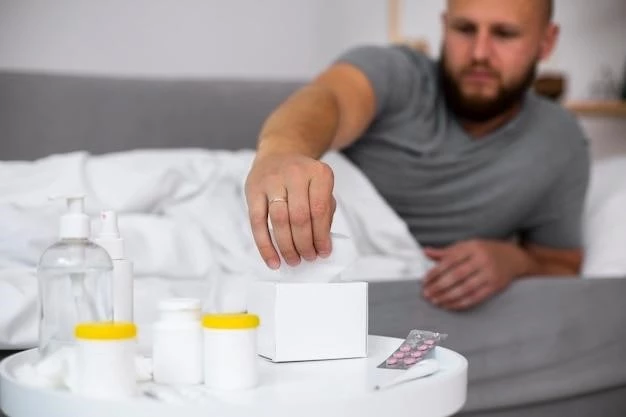Article Plan⁚ Understanding Oxybutynin and its Side Effects
- Dry mouth
- Constipation
- Dizziness
- Severe stomach pain
- Difficulty urinating
- Allergic reactions
Common Side Effects of Oxybutynin
When taking oxybutynin‚ some common side effects may occur. These include⁚
- Dry Mouth⁚ Stay hydrated and consider sugar-free candies or gum.
- Constipation⁚ Ensure a diet high in fiber and drink plenty of water.
- Dizziness⁚ Avoid sudden movements; rise slowly from sitting or lying down.
- Nausea⁚ Eat smaller‚ frequent meals and avoid spicy or greasy foods.
- Blurry Vision⁚ Do not drive or operate machinery if affected; consult your doctor.
If these symptoms persist or worsen‚ consult your healthcare provider. It’s essential to be informed about the potential side effects to manage them effectively while taking oxybutynin.

Serious Side Effects of Oxybutynin
While uncommon‚ oxybutynin may cause serious side effects that require immediate medical attention. These include⁚
- Severe Stomach Pain⁚ Seek medical help if you experience intense abdominal discomfort.
- Difficulty Urinating⁚ If you have trouble passing urine or experience pain‚ consult a doctor;
- Allergic Reactions⁚ Signs include rash‚ itching‚ swelling‚ severe dizziness‚ or trouble breathing.
- Chest Pain⁚ If you develop chest pain or tightness‚ seek medical assistance promptly.
- Rapid Heartbeat⁚ Contact your healthcare provider if you experience a sudden increase in heart rate.
It is crucial to be aware of these serious side effects and seek immediate medical attention if you encounter any of them while using oxybutynin.
Uses of Oxybutynin
Oxybutynin is commonly used to treat overactive bladder symptoms such as frequent urination‚ urgency‚ and incontinence. It works by relaxing the bladder muscles‚ reducing urinary frequency and urgency. Additionally‚ oxybutynin may be prescribed for conditions like bladder spasms or urinary incontinence. This medication helps improve bladder control‚ increase the time between bathroom visits‚ and reduce sudden urges to urinate. It is essential to follow your healthcare provider’s instructions regarding the use of oxybutynin to maximize its effectiveness and minimize potential side effects. Always consult your doctor regarding the appropriate use of oxybutynin for your specific condition.
Oxybutynin Dosages and Drug Interactions
When using oxybutynin‚ it is crucial to follow the prescribed dosage provided by your healthcare provider. The typical starting dose for adults is usually 5 mg two to three times a day‚ with adjustments based on individual response and tolerance. It is important not to exceed the recommended dose unless instructed by your doctor. Be sure to take the medication as directed‚ with or without food‚ and avoid crushing or chewing extended-release tablets.
Additionally‚ inform your healthcare provider about all medications‚ supplements‚ and herbal products you are taking to prevent potential drug interactions. Oxybutynin may interact with certain antibiotics‚ antifungal medications‚ and drugs used to treat overactive bladder or other conditions. Always consult your doctor before starting or stopping any medications while on oxybutynin to ensure safe and effective treatment.
Overactive Bladder⁚ Oxybutynin Treatment
Oxybutynin is commonly used in the treatment of overactive bladder‚ a condition characterized by sudden‚ frequent urges to urinate and incontinence. By calming the bladder muscles‚ oxybutynin helps reduce these symptoms and improve bladder control. It is essential to take the medication as prescribed by your healthcare provider to effectively manage overactive bladder.
Along with medication‚ lifestyle changes such as avoiding bladder irritants like caffeine‚ maintaining a healthy weight‚ and practicing pelvic floor exercises can complement the treatment of overactive bladder. It’s important to stay hydrated‚ monitor fluid intake‚ and establish a routine bathroom schedule to help manage symptoms effectively. Discuss any concerns or changes in symptoms with your healthcare provider to ensure the most suitable treatment plan for your overactive bladder.
Anticholinergic Adverse Effects of Oxybutynin
Oxybutynin belongs to a class of medications known as anticholinergics‚ which work by blocking the activity of acetylcholine‚ a neurotransmitter in the body. While effective in treating overactive bladder‚ anticholinergic medications like oxybutynin can have certain adverse effects due to their mechanism of action. These can include⁚
- Dry Mouth⁚ Sipping water frequently or using sugar-free gum can help alleviate dry mouth.
- Blurred Vision⁚ Avoid driving or operating machinery if you experience changes in vision.
- Constipation⁚ Eating high-fiber foods and staying hydrated can aid in managing constipation.
- Confusion⁚ Seek medical advice if you experience mental fog or cognitive changes.
- Urinary Retention⁚ Difficulty urinating can be a serious side effect; seek prompt medical attention.
It is important to be aware of these anticholinergic adverse effects and discuss any concerns with your healthcare provider. They can provide guidance on managing these side effects while benefiting from the therapeutic effects of oxybutynin.
Best Practices for Oxybutynin Use
When using oxybutynin‚ it’s essential to adhere to best practices to optimize its effectiveness and minimize potential side effects. Here are some key considerations⁚
- Follow Prescription⁚ Take oxybutynin exactly as prescribed by your healthcare provider.
- Stay Hydrated⁚ Drink an adequate amount of water to prevent dehydration.
- Monitor Side Effects⁚ Keep track of any side effects and inform your doctor.
- Avoid Alcohol⁚ Alcohol can worsen certain side effects; limit or avoid its consumption.
- Regular Follow-ups⁚ Attend follow-up appointments to assess the medication’s efficacy and any concerns.
By incorporating these best practices into your oxybutynin treatment plan‚ you can help ensure a safer and more effective experience with the medication. Always communicate openly with your healthcare provider regarding any questions or issues that may arise during the course of treatment.
Consulting a Healthcare Professional
It is crucial to consult a healthcare professional when using oxybutynin to ensure safe and effective treatment. Your doctor can provide personalized guidance based on your medical history‚ current health status‚ and individual needs. Here are some key reasons to consult your healthcare provider⁚
- Initial Consultation⁚ Seek professional advice before starting oxybutynin to discuss your condition and treatment options.
- Dosage Adjustment⁚ Inform your doctor of any side effects or concerns‚ as dosage adjustments may be necessary.
- Medication Interactions⁚ Consult your healthcare provider before starting any new medications to avoid potential drug interactions.
- Monitoring Progress⁚ Regularly update your doctor on the effectiveness of oxybutynin treatment and any changes in symptoms.
By maintaining open communication with your healthcare provider‚ you can optimize the benefits of oxybutynin therapy and address any issues that may arise promptly. Do not hesitate to reach out to your doctor for guidance and support throughout your treatment journey.
